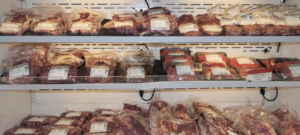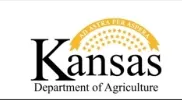As reported in The Hutchinson News: For more than a year, consumers and ranchers noticed the breakdown of the meat supply chain. Large packing plants needed to slow down due to COVD-19 protocol, and small and medium processors could not keep up with demand.
Meat products became scarce during the beginning stages of COVID-19. Consumers wanted more product, ranchers wanted to slaughter more animals, but small and medium processors did not have the capacity nor the labor to increase supply. 
Legislation
Senators Jerry Moran, R-Kan., and Amy Klobuchar, D-Minn., listened and came up with a solution. Their legislation is labeled the Requiring Assistance to Meat Processors for Upgrading Plants (RAMP-UP) Act, and provides $55.2 million in grants for small and midsized meatpacking plants to make the necessary investments to become federally inspected.
The RAMP-UP Act was signed into law by President Donald Trump on Dec. 27, 2020, as part of the Consolidated Appropriations Act, 2021. This legislation formed the Meat and Poultry Inspection Readiness Grant (MPIRG) program, which is now accepting applications to help small and mid-sized meat processors increase market opportunities.
“Small meatpackers in Kansas play an important role in providing new markets for livestock producers and meeting a growing, nationwide demand for quality meat,” said Sen. Moran in a news release. “I’m pleased to see the RAMP-UP Act become a reality, giving meat processing facilities the tools they need to increase their market opportunities while strengthening our food supply chain for consumers.”
This grant hopes to help plants improve meat and poultry slaughter, expand existing markets, increase capacity and efficiency, maintain strong inspection and food safety standards and increase access to slaughter or processing facilities for smaller farms and ranches.
MPIRG applications must be submitted electronically through www.grants.gov by 11:59 p.m. Eastern time on Aug. 2, 2021. For more information about grant eligibility and program requirements, visit the MPIRG webpage or email [email protected].
Some relief
In Kansas, other than the large plants, there are few locations for ranchers to choose from for federally inspected slaughterhouses. If a rancher wants to sell their meat over state lines, they must go to a federally inspected facility. Often animals must ride several hours to the meat processing plant, and ranchers must travel back that many hours to pick up their packaged meat.
Many of the slaughterhouses sprinkled throughout Kansas and 25 other states are state inspected facilities. When a rancher has their meat slaughtered and processed at one of these plants, the meat must remain within state lines. There are also custom-exempt facilities where farmers can bring their animal, but once the meat is processed, it has to be consumed by the rancher or hunter and marked not for resale.
Last fall, as part of the Securing Local Food Systems grant program, grants were awarded to more than 180 Kansas agriculture and food-related businesses in more than 70 counties. To qualify for this grant, businesses needed to have fewer than 200 employees. Unlike the RAMP-ACT, small meat processors that already offered federal inspection were able to apply.
Although these grants helped, some small meat processing plants still did not have the capital to expand into a USDA federally inspected facility.
Increasing supply
Kansas’ Secretary of Agriculture, Mike Beam, said a dozen new licenses were issued to small meatpackers this year.
“We have had a large increase in new plant openings,” said Carol Klema, the executive director of the Kansas Meat Processors Association. “Some have decided to remain open, some switched ownership and some opened for the first time.”
Plants have opened or are under new ownership in Abilene and Niotaze and in small cities in Harper and McPherson counties. Although plants also opened in Meade and Plainville, most of the smaller plants in Kansas are on the state’s eastern side. In more evenly populated states, like Missouri and Wisconsin, there are more processing plants, spread out more evenly than in Kansas.
The KMPA has 43 members. About half of the Kansas Meat Processors member plants received a portion of the earlier grant money.
Making a difference
For Jon Daniels and Tim Zerr, who started their slaughterhouse and retail shop, ZD’s Meatz, about three years ago in Oakley, this legislation is helpful. Because this facility is state inspected, ranchers cannot sell their product across state lines.
ZD Meatz wants to transition over to becoming a federally inspected facility, but the cost is prohibitive – for now.




